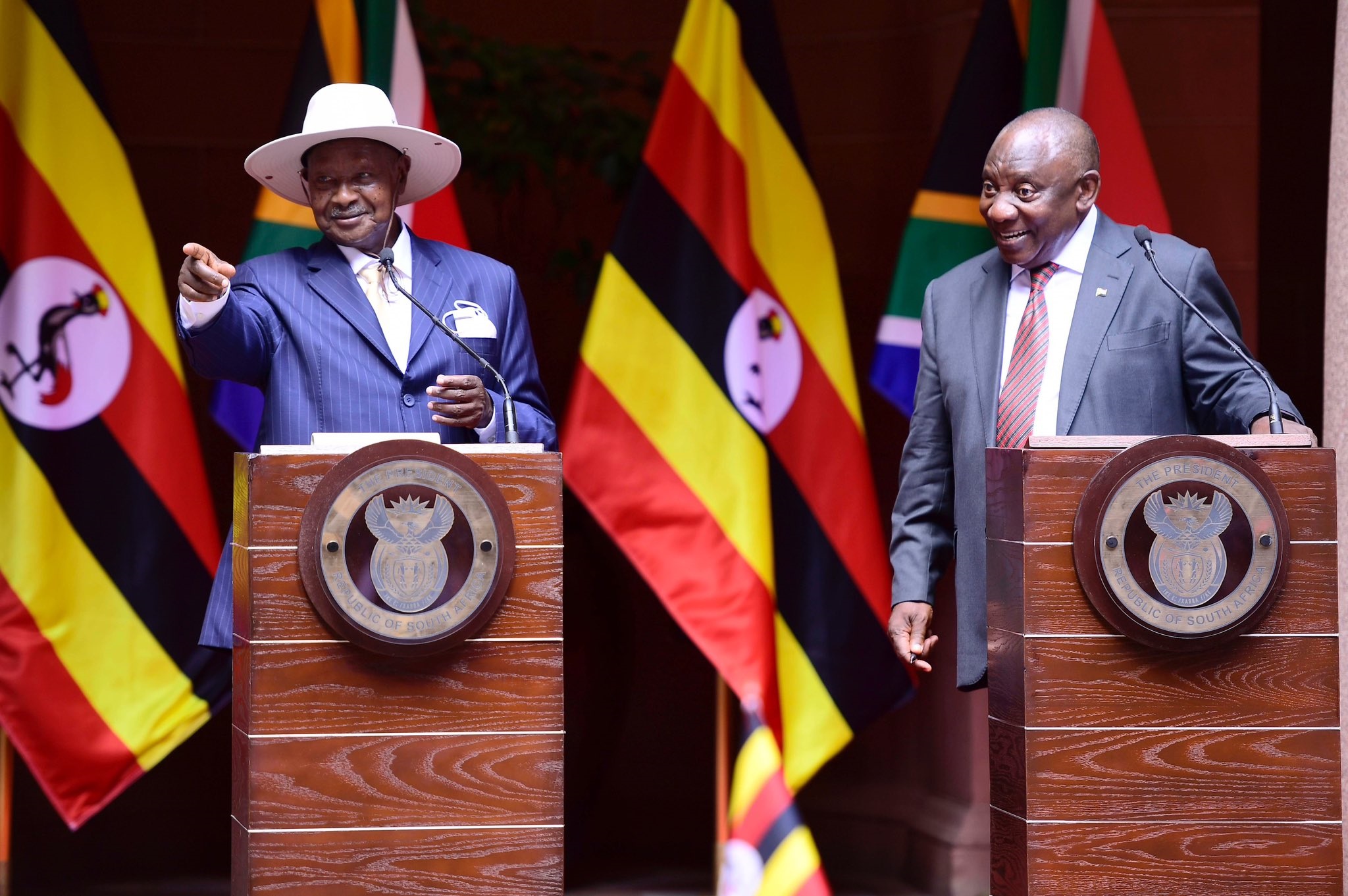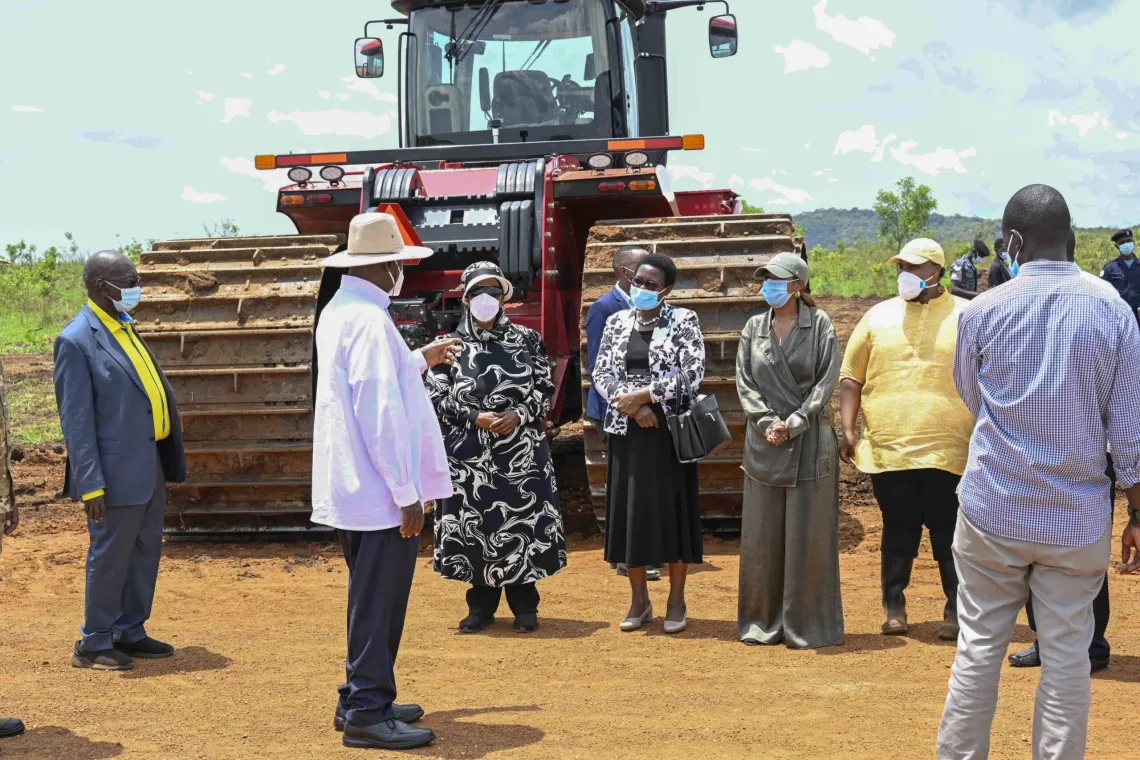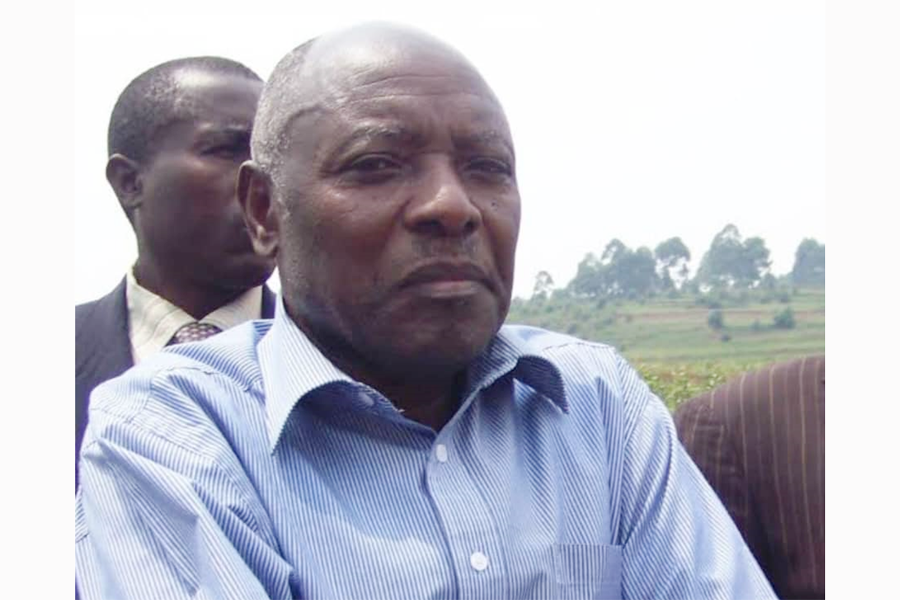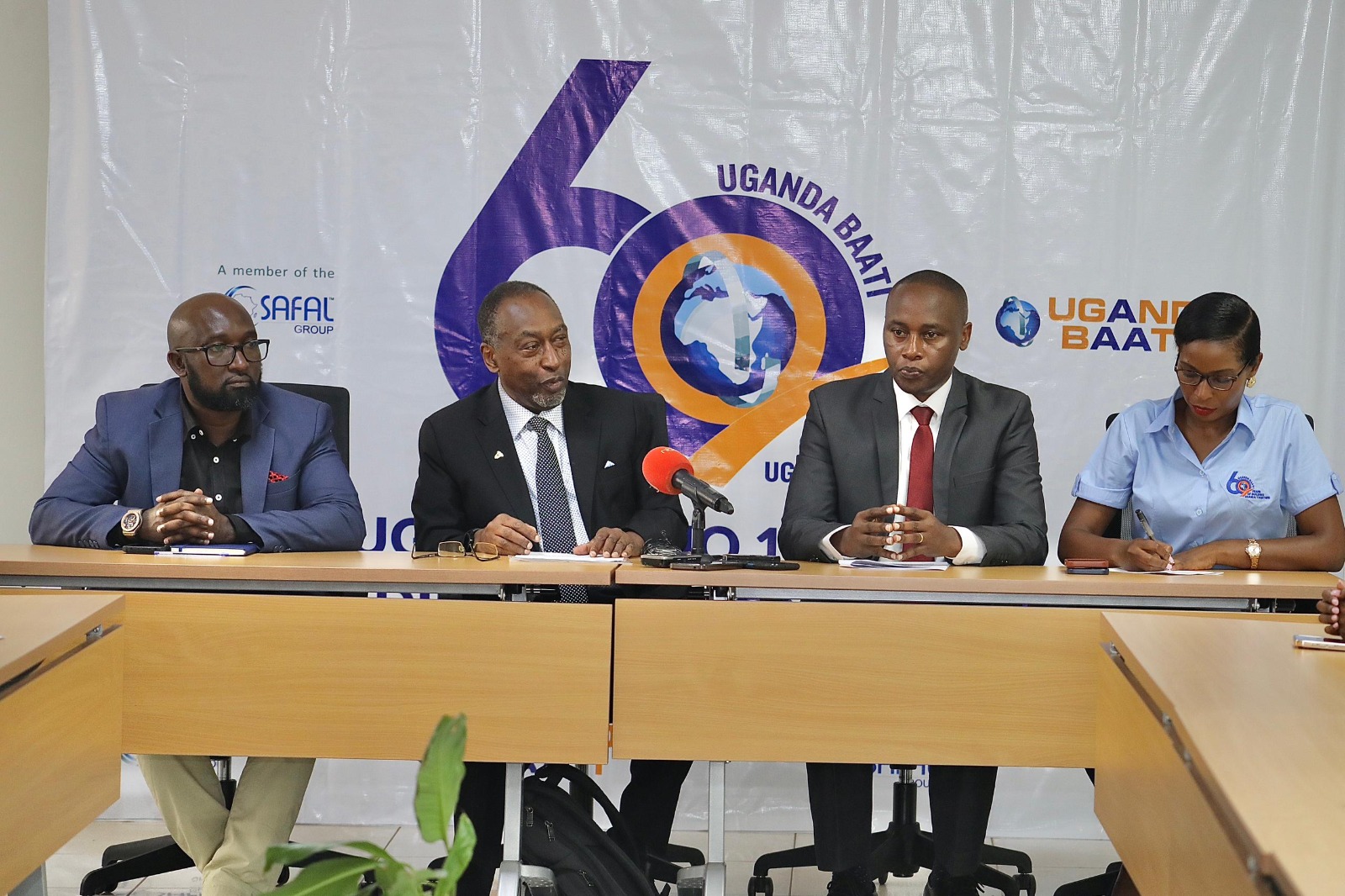Why Amama Mbabazi could eventually succeed Museveni
Three meetings in the last couple of months between President Museveni and former premier Amama Mbabazi have set tongues wagging as to what these two shrewd politicians could be cooking.
Yet the key question is: What is the endgame of the Museveni, Mbabazi meetings?
Keep Reading
Some analysts have opined that meetings and tete-a-tetes between the two politicians could mark the beginning a reconciliation process that could culminate into political reward for Mbabazi.
A once powerful minister, Mbabazi was humiliatingly dropped as NRM secretary general in December 2014 after it was revealed that he was scheming to take on Museveni in the battle for party chairmanship and ultimately, national presidency.
He contested against Museveni in 2016 and lost.
Yet ever since he lost, he kept quiet and retreated to private business unlike Dr Kizza Besigye, the opposition behemoth, who continues to put pressure on Museveni.
Some believe that his decision to keep silent is calculative and by appearing not to be hostile towards Museveni, Mbabazi could be playing himself back into NRM's political frame.
Here are the reasons why we think Mbabazi could bounce back in a big way.
Succession dilemma
President Museveni has been at the helm of leadership for the last 34 years. Throughout this time, he has registered a number of achievements most notably creating a peaceful environment for the economy to thrive.
Yet his leadership has been dogged by corruption, abuse of human rights and stifling of the political space.
Worse still, Museveni has failed to chart a clear succession plan. Twice in 2005 and 2017, he has engineered the process to amend the Constitution to enable him buy more time in power.
Previously he has often told off his critics that the Constitution is clear about the issue succession.
Yet in a country where the military still towers over a number of institutions, no one can tell for sure what will happen if something was to befall Museveni.
Would the constitution order be respected or the country would fall apart?
There was a time when it was widely believed that Museveni was grooming his son, Lt Gen Kainerugaba Muhoozi to replace him.
Over the last couple of years, Muhoozi's influence appears to have waned and there have been reports, from the corridor of power, that Museveni could have dropped this plan.
This is where Mbabazi comes in. For long, Mbabazi was seen as natural successor to Museveni.
He has served in all the sensitive positions.
He has served as Prime Minister, Minister of Defence and Minister of Security. In 2004 after the death of Wapakhabulo, he briefly served in three portfolios (Attorney General, Ministry of Foreign Affairs and Defence). He has also served as director general of External Security Organisation (ESO) and secretary general of the NRM.
This is undoubtedly a rich political CV and not many people within the NRM have such accomplishments.
In any case, there has always been talk that Museveni had promised Mbabazi the top slot only for the president, at the urging of his family to change his mind.
Will Museveni change his mind this time in Mbabazi's favour? It is a tough question to answer.
International connections
Mbabazi could rely on his international connections to rebuild his political clout. He has a leg into the household of South Africa president Cyril Ramaphosa given the marriage of his niece Bridget Birungi to Andile Ramaphosa.
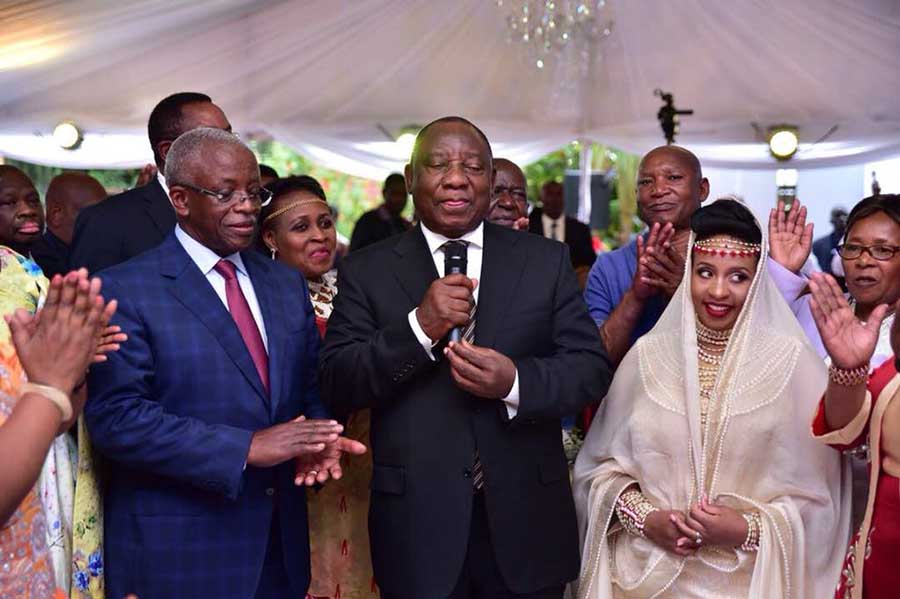 Mbabazi and Ramaphosa at the give-away of his niece in August 2018
Mbabazi and Ramaphosa at the give-away of his niece in August 2018
He also sits on the advisory board of the Brazzaville Foundation whose goal is to work for peace, prosperity and conservation in Africa and beyond.”
Other members of the board are: former South African president Kgalema Motlanthe, Amara Essy, the former foreign minister of Cote D’Ivoire and the Secretary General of the OAU who presided over the transition to AU, Pär Stenbäck, the former foreign minister of Finland, and Dr José Ramos-Horta, the former president of East Timor. The patron is Prince Michael of Kent, the fourth son of King George V.
This wealth of international connections is certainly important for anybody who aspires for top political leadership.
Mr Workaholic and Sober
Like Museveni, Mbabazi does not drink alcohol nor does he smoke. He used to be a chain smoker in the 70s until he dropped the habit in Nairobi on the urging of friends including Matthew Rukikaire.
This therefore means that Mbabazi retains a focus and once he sets his sights onto something, he gives it his all.
In 2008 as NRM MPs bayed for Mbabazi's blood following the Temangalo saga, Museveni jumped to the defence of his secretary general. Museveni told the MPs that Mbabazi is a very hardworking person and to the best of his knowledge he was as clean as a Mzungu.
Museveni told the MPs that unlike some of them who spill party secrets in bars, the Mbabazi he knows is always sober 24 hours a day and can never do such a thing. To manage a country, you need to be sober.
Widely respected
Although hated by a cross section of the NRM, Mbabazi remains widely respected within the party and on the bigger political landscape.
This respect was on show in Nakaseke when he attended Tarehe Sita celebrations on February 6th. Army officers saluted him and from their body language, many civilian leaders were awed by just being in the presence of Mbabazi. You could literally see their jaws dropping as they shook hands with him.
This therefore means that should Museveni tap him for the top job, a number of people who are convinced that he will be up to task.
His political clout has at times overshadowed the positions he holds.
When Mbabazi was appointed minister of state in the President’s Office in charge of Political Affairs in 1996, it was not seen as major position, but his clout and pompous style quickly transformed it into a powerful one.





